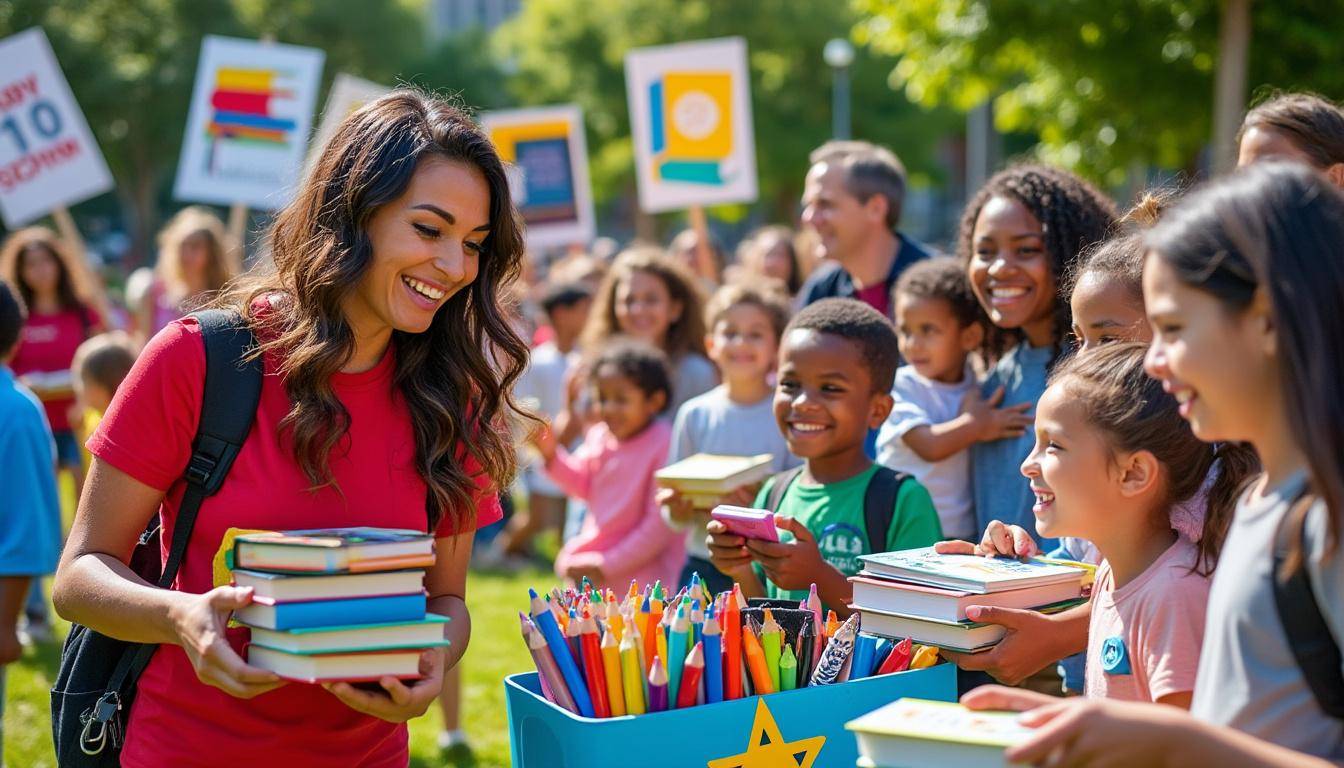Empowering Education for Homeless Children: Rallying Support for Brighter Futures
Every year, events like the recent rally hosted by the Homeless Children’s Education Fund in Pittsburgh bring crucial attention to the challenges faced by children without stable housing. These children are not just statistics; they are students with dreams, talents, and immense potential. Through initiatives such as Hope4Ed and SafeHavenScholars, communities come together to ensure that homelessness does not become a barrier to learning and growth.
- Raise Awareness: Public rallies highlight the critical need for educational support among homeless youth.
- Community Involvement: Engage local leaders, educators, and families in advocating for equitable school access.
- Resource Mobilization: Encourage donations and volunteer efforts for programs like BrighterFuturesFund.
- Policy Advocacy: Support legislation aligned with the McKinney-Vento Homeless Assistance Act that safeguards homeless students’ rights.
- Education Access: Promote initiatives such as BooksBeyondWalls to bridge learning gaps caused by housing instability.
How Community Rallies Impact Homeless Children’s Education
On a typical Tuesday in Pittsburgh, local leaders and advocates unite for a moment of solidarity with homeless youth, demonstrating how education can be a powerful tool for change. Events like these do more than raise awareness—they catalyze partnerships with programs such as PathwayPromise and DreamsUnhoused, which work directly with schools and families to eliminate barriers to education.
- Visibility: Bringing homeless children’s needs into public consciousness.
- Collaboration: Strengthening networks between nonprofits, schools, and government agencies.
- Empowerment: Giving youth a voice and a platform to share their experiences.
- Resource Sharing: Distributing educational materials and technology to students in need.
Effective collaboration was also highlighted in the context of broader educational research, as noted in related discussions on platforms such as global education access and early childhood initiatives accessible on Education to the Top. These resources underscore the importance of holistic approaches to learning, particularly for vulnerable populations.
Programs Transforming Educational Opportunities for Homeless Youth
Key organizations are driving transformation through targeted support programs, ensuring that homeless children receive not only access but quality education. The EducationMatters Initiative focuses on integrating academic and social supports, while Homeless2Harvard inspires through success stories of youth overcoming adversity.
- Academic Support: Tutoring and mentorship linked with tailored learning plans.
- Social Services: Wraparound services addressing food insecurity, counseling, and healthcare.
- Scholarships: Financial aid initiatives like ShelterScholars that remove economic barriers.
- Technology Access: Provision of devices and internet connectivity for remote and hybrid learning.
These efforts align with insights from education leadership experts featured in pieces such as Martyn Oliver’s education leadership discussions, reinforcing the need for innovative educational practices that accommodate all learners.
Navigating Challenges and Building Solutions in Homeless Children’s Education
Despite progress, several obstacles continue to hinder homeless children’s educational journeys. Frequent moves disrupt learning continuity, and stigma can affect students’ self-esteem and engagement. Organizations like the Classroom4All project focus on creating inclusive classrooms that welcome and support mobility and diversity.
- Identification: Addressing the challenge of recognizing homeless students who often go unnoticed.
- Coordination: Ensuring smooth transitions between schools through effective communication and records transfer.
- Emotional Support: Providing trauma-informed care and counseling services.
- Family Engagement: Involving caregivers in education plans to build a stable learning environment.
Such integrative approaches resonate with frameworks found in specialized education articles, for instance in strategies discussed about delegating education recruiters and education equity. Similarly, pediatric care perspectives from Michigan Medicine reinforce the necessity of health and education partnerships.


